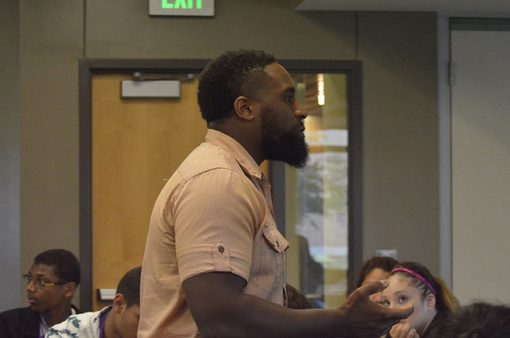Social Architecture
|
|
Social Architecture is a facilitation process that empowers all participants to contribute, build investment, advocate for individual needs while integrating into collective effort. As a social architect Mr. Abdur Razzaq utilizes his understanding of human psychology and social work principles to bridge gaps between social groups that often undermine and compromise the overall effectiveness of institutions. The architecture process identifies and integrates individual and collective diversities with the purpose of honoring human dignity and expanding organizational mission and margin.
Why is Social Architecture relevant & necessary?In 2009 Mr. Abdur Razzaq completed a research project through the University of St. Thomas examining the effects of top down organizational change on front-line workers and client services. The research was conducted on a large bureaucratic state agency. The findings were profound and glaring as the organization witnessed the undermining and negative effects of “street level bureaucracy.” His research concluded that when change is not facilitated both individually and collectively within organizations staff resist the process and undermine policy intent ultimately having negative impact on service delivery and organizational outcomes.
|
Guiding terms and pedagogy concepts• Multicultural Equilibrium- the navigation and negotiation of cross-cultural interactions, offering fairness and respect to the needs of each culture without subjugation or oppression, allowing all parties to experience wholeness.
• Cultural Othering- the psycho-social-emotional invalidation of an individual or collective resultant from dismissive, non-acknowledgement or subjugation of cultural values, wisdom, world view and or pedagogical processes • Organizational mirroring- trends, commonalities and or themes (particularly related to marginalization) experienced by clients that resemble employee experience pervasive throughout the organization. • Shared space- is the process of cross-cultural validation and acceptance of the right for self and others to interact as self-governing whole cultural beings • Systematic place/ism- the formal or informal social, financial or rank limitations placed upon an individual within an organization in-congruent with his or hers talents, abilities, ambition, and or formal educational training. |


